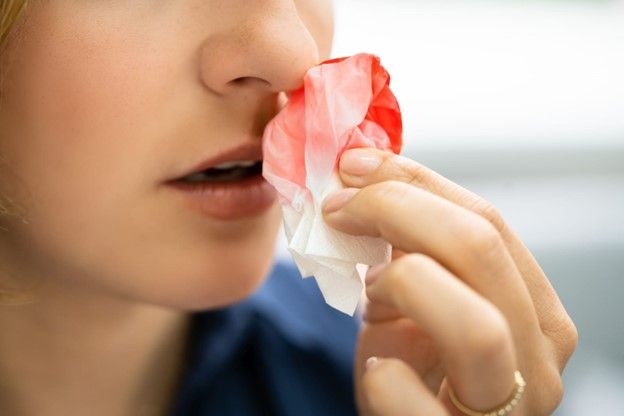How to Use Nasal Spray
Nasal sprays can be a game-changer for anyone dealing with allergies, congestion, or sinus problems. If you’ve never used one before, the process can seem a bit tricky. But don’t worry! This guide will walk you through everything you need to know about using nasal sprays effectively, ensuring you get the most benefit from your treatment.
What is Nasal Spray?
Nasal spray is a medication delivered directly into the nasal passages. It can come in various forms, including decongestants, antihistamines, saline solutions, and corticosteroids. Each type serves a specific purpose:
- Decongestant Sprays: Help reduce swelling and congestion in the nasal passages
- Antihistamine Sprays: Target allergy symptoms by blocking histamine release
- Saline Sprays: Moisturize dry nasal passages and help clear out mucus
- Corticosteroid Sprays: Reduce inflammation in the nasal passages for chronic conditions like sinusitis
Why Use Nasal Spray?
Nasal sprays are favored because they deliver medication right to where it’s needed, offering quicker relief than oral medications. They can effectively clear nasal congestion, decrease inflammation, and keep your nasal passages moist. Plus, they’re easy to use and can be conveniently administered at home, making them a practical option for managing respiratory health.
How to Use Nasal Spray: Step-by-Step Instructions
For nasal sprays to work effectively, it's important to use them correctly. Here’s a simple step-by-step guide:
1. Prepare Your Spray
- Read the Label: Always check the instructions on the package, as different sprays have specific guidelines.
- Shake the Bottle: If your spray requires shaking, give it a good shake to mix the ingredients well.
2. Get Ready to Spray
- Blow Your Nose: Before using the spray, gently blow your nose to clear any mucus. This will help the medication reach deeper into your nasal passages.
- Find a Comfortable Position: You can either sit upright or stand, but make sure your head is slightly tilted forward.
3. Position the Spray
- Hold the Bottle Correctly: Use your thumb to support the bottom of the bottle and your index and middle fingers to hold the nozzle.
- Insert the Nozzle: Place the tip of the spray nozzle into one nostril while keeping the other nostril closed. Don’t insert it too far—just enough to create a seal.
4. Administer the Spray
- Breathe In Gently: As you spray, breathe in slowly through your nose. This helps pull the medication deeper into your nasal passages.
- Avoid Sniffing Hard: Sniffing too forcefully can push the medication back down your throat instead of allowing it to stay in your nose.
5. Repeat as Necessary
- Alternate Nostrils: If your instructions say to use multiple sprays, switch to the other nostril and repeat the process.
- Don’t Overuse: Follow the recommended dosage. Overusing nasal sprays, especially decongestants, can lead to rebound congestion, where your nose becomes more congested after stopping use.
6. Clean Up
- Wipe the Nozzle: After each use, wipe the tip of the spray with a clean tissue or cloth to prevent contamination.
- Store Properly: Keep the nasal spray in a cool, dry place and ensure the cap is securely fastened.
Tips for Effective Use
- Stay Consistent: If you’re using corticosteroid or antihistamine spray for allergies or chronic sinusitis, use it daily as directed for best results.
- Be Patient: It may take a few days for some nasal sprays (like corticosteroids) to show full effects, so don’t be discouraged if you don’t feel immediate relief.
- Consult with Your Doctor: If you have any questions or concerns about using nasal spray—especially if you’re pregnant, nursing, or have existing health conditions—talk to your ear, nose, and throat (ENT) provider.
Common Mistakes to Avoid
- Using Incorrect Technique: Following the steps above ensures you’re using the spray effectively.
- Not Cleaning the Nozzle: Always wipe down the nozzle after each use to keep it clean and prevent infection.
- Ignoring Expiration Dates: Check expiration dates regularly and dispose of any expired products.
Nasal sprays offer an effective and convenient way to manage various nasal and sinus concerns. Consulting with an ear, nose, and throat doctor can help you determine which nasal spray is best for your specific needs and symptoms.
ENT Care Centers strive to enhance and maintain optimal ear, nose, and throat health. Should you have any inquiries or require assistance, feel free to reach out to us, and our experienced professionals will be ready to help. Our commitment lies in delivering convenient and effective ENT care services to patients in Louisville, Kentucky, and southern Indiana.













